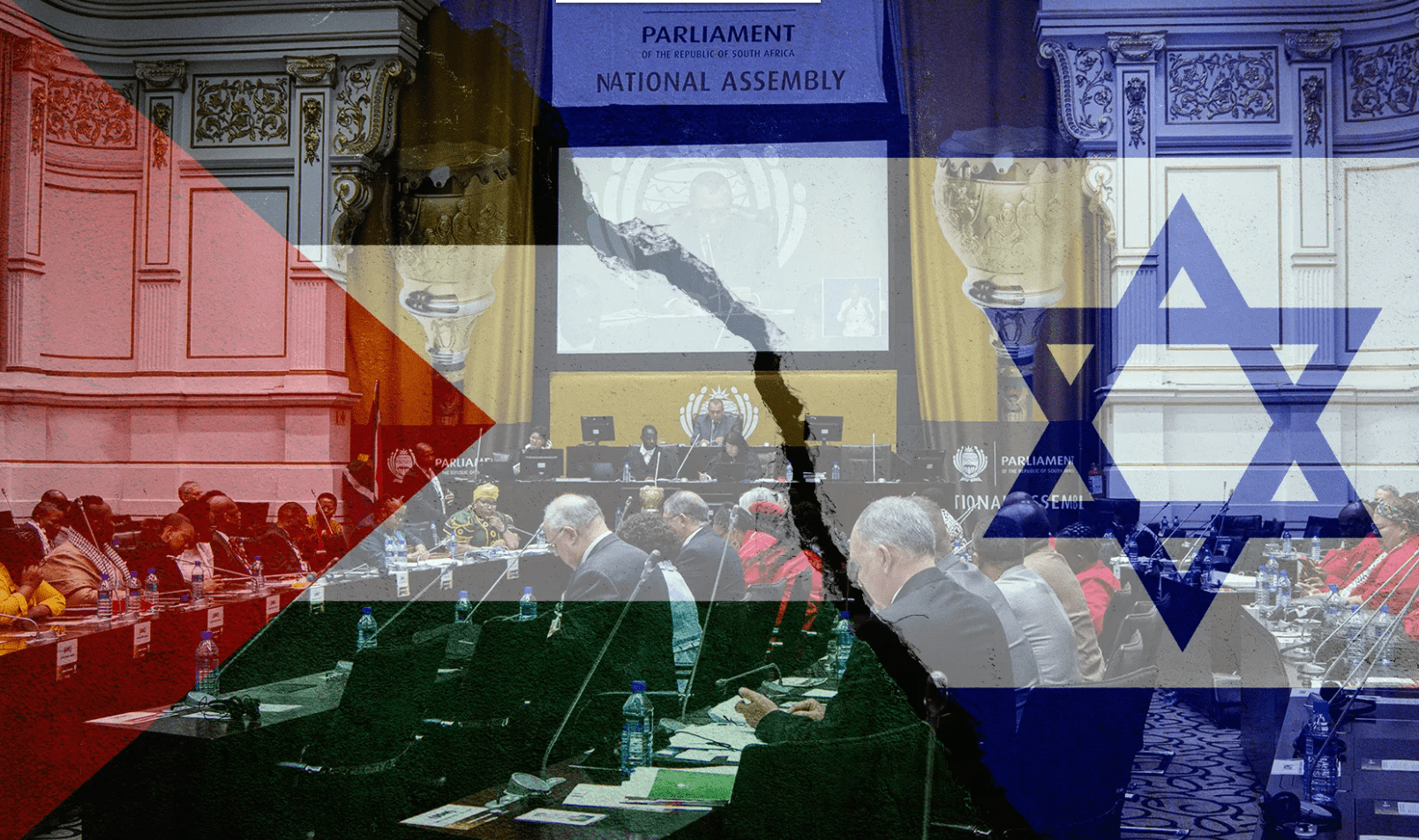News
History Shows us that Without Dialogue there can be no Diplomacy
Closing the Israeli embassy in Pretoria risks undermining the bedrock of diplomacy – dialogue.

In August 2018, I had lunch with French Ambassador Pierre Vimont in the alpine village of Alpbach, nestled in southern Austria near the city of Innsbruck. Over the course of our meal, I probed him with a series of questions – one of which came to dominate our conversation. “What is perhaps one of the biggest diplomatic blunders a country can make?” I asked. He replied: “I would strongly advise against severing diplomatic ties with another country.”
Fast-forward five years and I am reminded of this conversation – this time sitting in Johannesburg and observing the cries from political parties for relations with Israel to be cut, a reality which is slowly materialising following Tuesday’s parliamentary vote to close the Israeli embassy in Pretoria until a ceasefire is secured and the country commits to UN-facilitated negotiations.
Supporters of the parliamentary vote will view it as a victory and a step towards punishing Israel and supporting the Palestinian cause. But by suspending diplomatic ties with Israel, South Africa would in fact be undermining the bedrock of diplomacy: dialogue. This will ultimately diminish its own influence and ability to contribute towards a successful ceasefire.
The art of diplomacy
Diplomacy is perhaps more an art than a science because human beings must interface with each other, allowing for emotions, biases and arrogance to creep in. To err is human, as they say. Yet for diplomatic efforts to be effective they must remain rational, objective and measured. If countries decided to downgrade their embassies or worse, sever diplomatic ties, whenever they disagreed with another country, global affairs would look very different.
The former US Secretary of State Dean Acheson summarised the purpose of diplomacy perfectly in a 1949 speech. “We do not establish an embassy or legation in a foreign country to show approval of its government,” he insisted, adding: “We do so to have a channel through which to conduct essential government relations and to protect legitimate United States’ interests.”
This was the point made by the French ambassador in 2018: formal diplomatic channels enable dialogue, the foundation upon which anything in the international arena can be achieved. Without dialogue, it becomes very difficult to argue your country’s stance and achieve your foreign policy objectives.
Dialogue was integral in ending the Cuban Missile Crisis – what many have labelled as the single most dangerous event in human history. It was through discussions between President John F Kennedy and Anatoly Dobrynin, the Soviet Ambassador to the United States, that the issue of removing American Jupiter missiles from Turkey was first broached. Kennedy gave Dobrynin his assurances that they would be removed, a point the latter included in his note to Moscow.
By November 1962 the Soviets had dismantled their missiles stationed in Cuba and in April 1963, the Americans removed their Jupiter missiles from Turkey.
Strategic or shortsighted?
Diplomacy is a tool for achieving one’s foreign policy objectives.
President Ramaphosa reiterated South Africa’s foreign policy ahead of the 2023 BRICS Summit, which was hosted in Johannesburg. In citing the 1955 Freedom Charter, he declared that “South Africa shall strive to maintain world peace and the settlement of all international disputes by negotiation – not war”. He continued to underscore the main pillars of South Africa’s foreign policy, which include “the promotion of human rights, peace and stability and the strengthening of trade and investment ties with other countries”.
Amid the latest war between Israel and Hamas, which began officially on 8 October following the murder of 1,200 Israelis and capture of 240 hostages, some 13,000 Palestinians are said to have been killed in Gaza. Numerous governments, including South Africa’s, have condemned Israel’s recent actions in Gaza.
In seeking to condemn Israel’s actions, the ANC announced on 16 November that it would support a parliamentary motion calling for the Israeli embassy in South Africa to be closed and diplomatic relations suspended.
The party’s first deputy secretary-general Nomvula Mokonyane, quoted in BusinessDay, provided her justification for the vote: “The Israel government are trying to eliminate an entire nation. That is exactly what it is. No government can go out [and] use its machinery the way it is and claim any different. We have to stand up.”
The EFF’s Mbuyiseni Ndlozi added his party’s stance. “We should fire the ambassador of Israel. We can’t be friends with Israel until they establish a society in compliance with international law,” he said.
Both Mokonyane and Ndlozi are entitled to these comments, and there are certainly many others who would share them. This became evident on Tuesday as the motion calling for the closure of the Israeli embassy in Pretoria was successfully passed with 248 in favour and 91 against. This comes a day after Israeli Ambassador Eliav Belotserkovsky was recalled to Jerusalem for consultations with his government’s Ministry of Foreign Affairs.
But if the ANC government – together with other political parties – is aligned with the country’s foreign policy objective of promoting peace and resolving disputes through negotiation, then surely it would not seek to suspend diplomatic relations with a key belligerent within an ongoing conflict?

Read more in Daily Maverick: Israel-Palestine War
This is because dialogue is the foundation of diplomacy. One cannot hope to negotiate an end to a conflict nor champion the Palestinian cause effectively if the channels for communication no longer exist. By doing so, South Africa is diminishing its own influence and ability to contribute towards a successful ceasefire. As Secretary Acheson explained in 1949, a diplomatic mission does not entail support for the host country; it provides an avenue through which views and demands can be communicated.
Naledi Pandor, South Africa’s Minister of International Relations and Cooperation, acknowledged this issue by noting that “[the] breaking of diplomatic relations with Israel will be counterproductive, as it will also affect our representative office in Ramallah, Palestine, and by implication weaken the meaningful role that SA can play in the Palestinian cause”.
Instead, South Africa has seemingly opted to replace dialogue with strong-arm tactics, believing that by suspending diplomatic ties, it, together with other countries, will compel Israel into a ceasefire. This is a tall order considering that the only other countries to have taken similar actions include Bolivia, Belize, Colombia, Honduras, Chile, Chad, Jordan, Bahrain, and Türkiye. This is hardly a coalition which will force Prime Minister Netanyahu to change tack.
Tuesday’s parliamentary vote is not legally binding and instead serves to inform government decision-making rather than enforce it. To this end, the ANC government can still choose to keep the Israeli embassy in Pretoria open while giving diplomacy a second chance.
The Cuban Missile Crisis demonstrates that it was not bluster and grandstanding which brought an end to tensions, but rather, rational and measured discussions between stakeholders. If I were to return to Alpbach and have lunch with Ambassador Vimont again, I believe he would agree that this is the best course of action for resolving the current conflict in the Middle East.
This article originally appeared on the Daily Maverick
Photo: Ziyanda Duba | iStock


